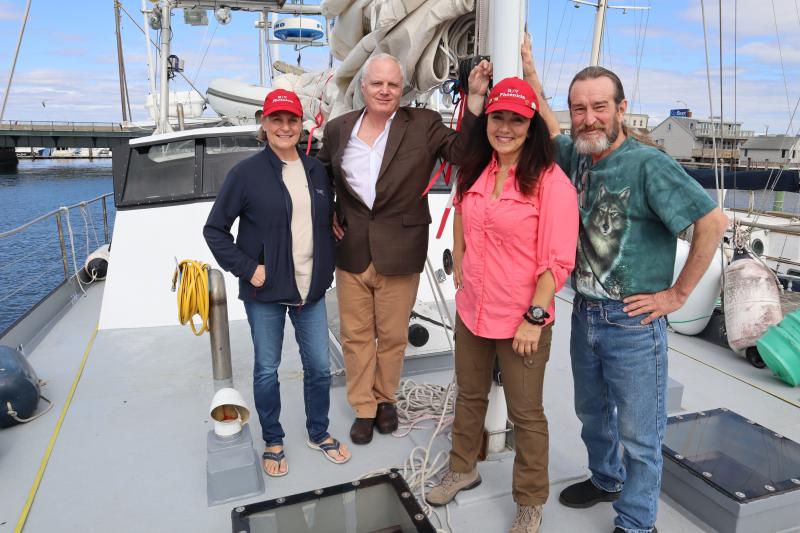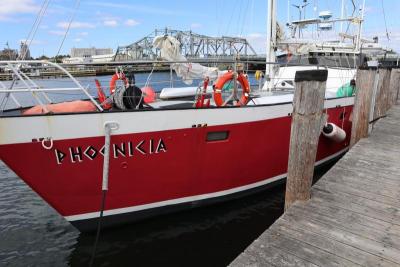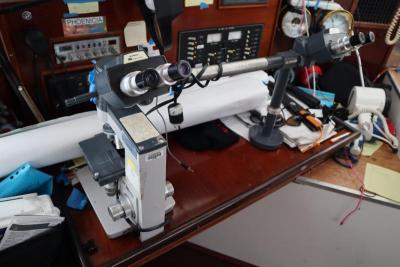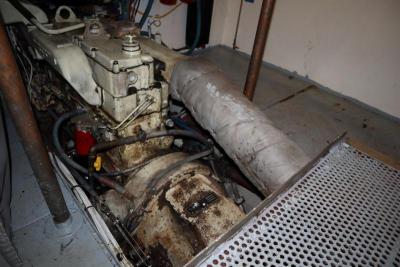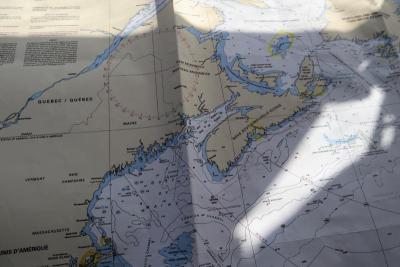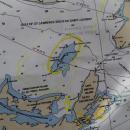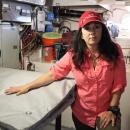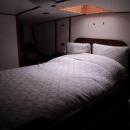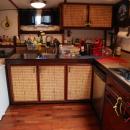Mattapoisett-based researchers study plastic-eating bacteria
Mattapoisett-based researchers Michael and Alissar Langworthy and their “pirate scientists” participated in a 46-day scientific expedition to the Arctic Circle to learn about plastic-eating bacteria and their possible benefits for the environment and human health.
Dr. Michael Langworthy described the expedition as proof that experts from different fields can focus on one subject. He is an orthopedic surgeon for SouthCoast Health and former Navy Captain, and his wife Alissar is the ship captain of the “Phoenicia,” a 75-foot research vessel.
With the help of fellow sailors, doctors, and students, the crew of self-described “pirate scientists” took samples of plastic bottles to study bacteria in the northern Atlantic Ocean, stopping at ports in Newfoundland, Nova Scotia, and Greenland along the way.
Dr. Langworthy said that the expedition was related to the 2016 discovery of bacteria that mutated to be able to digest plastic outside of a bottle recycling facility in Japan. For the Atlantic expedition, he said that he was especially interested in Spore-forming bacteria that can lay dormant for extended periods of time, before becoming active, allowing him to use them at will.
Researchers dove into the water to collect plastic bottles and used a device similar to a hole punch to collect plastic samples, to evaluate how bacteria were digesting the material.
As plastic continues to fill the ocean, it poses threats to the ecosystem, and human health, since the plastic is consumed by fish that are then consumed by people.
“If we can take plastic out, and find a better alternative, that’s the health benefit,” Langworthy said.
Dr. Langworthy said that he hopes to one day harness the power of plastic-eating bacteria to use nature to solve an industrial issue. He added that the use of CRSPR technology, which allows scientists to edit genes, could help create bacteria that could remove plastic from the ocean.
Captain Alissar Langworthy departed from Pope’s Island in New Bedford on Aug. 1 with French Canadian Sailor Jaques Fournier, orthopedic surgeon Dr. David Adelberg, and Tyler Spencley, a pre-med student at Grand Valley State University on board.
Dr. Langworthy took a plane to join the expedition for about a week, but had to return home to attend to his work as a surgeon. The Langworthys’ daughter, Alissar P. Langworthy, also joined for a section of the journey from Lewisporte Harbour to St John’s Harbour in Newfoundland. Anesthesiologist and fellow sailor Frederique Popitz also joined on the journey back to New Bedford. Captain Langworthy and Fournier were the only researchers who stayed on the Phoenicia for the entirety of the trip.
Along the way, Captain Langworthy said that crew members encountered icebergs, 12 to 14-foot waves, and 65-knot-winds as Hurricane Dorian moved through the north Atlantic.
“It was like someone hitting metal on metal,” the captain said of the storm.
While at sea, Captain Langworthy said that crew members took shifts on night watch, took turns cooking in the ship’s kitchen, and slept onboard while stationed at various ports. Despite the odd sleeping schedules, and limited living space she said that crew members “fall into a pattern” during expeditions.
After a long journey in the name of science, the Phoenicia returned to New Bedford on Sept. 15.
Dr. Langworthy said that in 2016 scientists discovered bacteria that mutated to be able to digest plastic outside of a bottle recycling facility in Japan. His research was based on that finding.
As plastic continues to fill the ocean, it poses threats to the ecosystem, and human health, since the plastic is consumed by fish that are then consumed by people.
“If we can take plastic out, and find a better alternative, that’s the health benefit,” Langworthy said.
He added that the use of CRISPR technology, which allows scientists to edit genes, could help create bacteria that could remove plastic from the ocean.
The crew analyzed some of the samples on the Phoenicia, and that others were sent to other research locations, like the Cambridge Lab Center. So far samples have indicated that the bacteria are infiltrating the plastic, and degrading it.
Southcoast Health provided a microscope, and other sampling supplies to help analyze samples collected at sea.
Captain Langworthy is a painter, and said that her time at sea influences her work. She has been the captain of the Phoenicia for six years, but said that this was her first time taking it on an expedition of this kind.



